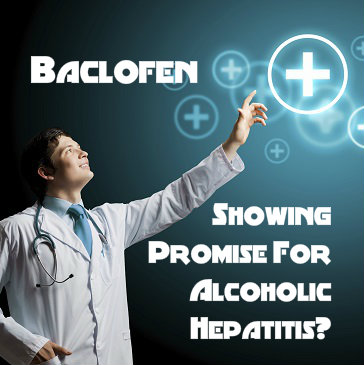Baclofen Shows Promise As Treatment For Alcoholic Hepatitis
Alcoholic hepatitis is a serious and potentially deadly liver ailment triggered by prolonged, excessive alcohol intake. It constitutes one form of a larger condition called alcohol-related liver disease. In a study published in May/June 2014 in the journal Alcohol and Alcoholism, researchers from two U.S. universities explored the potential usefulness of a medication called baclofen in easing the effects of alcoholic hepatitis in people affected by alcoholism. This medication, originally developed to treat certain types of muscle spasms, has already been shown to help people receiving treatment for alcoholism reduce the intensity of their cravings.
Alcoholic Hepatitis
 Hepatitis is the generic medical term for any disease mechanism that results in inflammation inside the liver, the body’s primary organ for doing such things as processing toxins and regulating cholesterol levels. Whenever you drink alcohol, a substance essentially poisonous to humans, your liver must process it and break it down so you can avoid any harmful effects.
Hepatitis is the generic medical term for any disease mechanism that results in inflammation inside the liver, the body’s primary organ for doing such things as processing toxins and regulating cholesterol levels. Whenever you drink alcohol, a substance essentially poisonous to humans, your liver must process it and break it down so you can avoid any harmful effects.
Unfortunately, the liver breaks down alcohol relatively slowly and you can easily overwhelm its capacity for detoxification. A person who regularly consumes excessive amounts of alcohol is at risk for one or more progressively damaging changes in his or her liver function.
The first of these changes, called alcoholic fatty liver disease, occurs when the liver starts to produce an abnormally large amount of fat inside its individual cells. Alcoholic hepatitis sets in after alcoholic fatty liver disease and produces symptoms such as jaundice, declining appetite, pain in the abdominal region, nausea and vomiting. The third stage of damaging change, called alcoholic cirrhosis, involves a permanent, disruptive buildup of scar tissue inside the liver.
As many as one-third of all people who habitually consume excessive amounts of alcohol will develop alcoholic hepatitis, the American Liver Foundation reports. The inflammation associated with the condition can have a negative impact on liver function that ranges from mild to severe. People with relatively mild forms of alcoholic hepatitis can recover their liver function if they stop drinking. However, people with relatively severe forms of the condition can experience rapid declines in liver health that lead to a cessation of function (i.e., liver failure). In turn, a person with liver failure can easily die.
Baclofen
Doctors traditionally prescribe baclofen for people experiencing muscle spasms stemming from either certain diseases that damage the spinal cord or the degenerative autoimmune disorder multiple sclerosis. The medication achieves its therapeutic effects in this context by slowing down the spinal cord’s rate of nerve cell interaction. Over the last few years, doctors have started using baclofen as an off-label treatment for the drinking cravings that typically arise during alcoholism recovery. If left unaddressed, these cravings can easily derail an attempt at establishing or maintaining sobriety. In 2012, researchers from France and Italy published the results of a study that confirmed the usefulness of baclofen in reducing the intensity of alcohol cravings.
Baclofen’s Usefulness In Alcoholic Hepatitis Treatment
In the study published in Alcohol and Alcoholism, researchers from Loma Linda University and UCLA used a small-scale investigation of 40 people to test baclofen as a treatment for alcoholic hepatitis. All of the study participants were affected by alcoholism; some of them had both alcoholic hepatitis and alcoholic cirrhosis, while others only had alcoholic hepatitis. Thirty-five of the 40 participants received baclofen at some point during a one-year time period; the average length of use for the medication was just under six months. The researchers gauged the effectiveness of baclofen by comparing the results of seven key tests for alcoholic hepatitis before and after treatment with the medication.
Thirty-four out the 35 baclofen recipients maintained their sobriety throughout the period under consideration. Critically, the researchers concluded that these individuals also experienced a significant reduction in the severity of their alcoholic hepatitis as measured through six out of the seven screening tests. In addition, they concluded that use of baclofen did not produce any substantial side effects.
The study’s authors believe their findings underscore both the usefulness and the safety of baclofen as a treatment for alcoholic hepatitis. However, the size of the study was quite small. As a result, the authors urge further work in this area in order to confirm their results and determine the specific doses of the medication that have the maximum benefits for people with alcoholism-related liver inflammation.
Find Out If Baclofen Can Help Treat Cocaine Addiction



